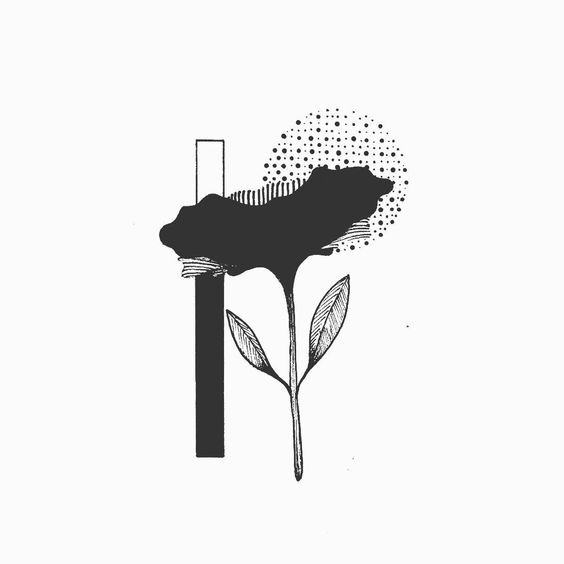Within the Middle East and at the core of Arab culture, mothers are members of high praise and importance. This is clear through colloquial phrases, anecdotal cultural stories, pop-culture and even the Quran. A popular phrase, coined from the Quran that is echoed in all Arab countries is “Paradise lies at the feet of mothers”. Furthermore, as a collectivist society, the family and its interests are prioritized over the individual. Hence, any strain on the children’s relationship with the mother becomes problematic and can very quickly harm one’s mental well-being.
This is specific to young girls in our society since from birth up until marriage, they are confined within the domestic domain and are taught to practice what their mother’s preach, word by word. A worldwide phenomenon that manifests itself in a more vicious form in Arab families is the oppression cycle within the mother-daughter relationship. This cycle arises due to a number of reasons, many directly related to our cultural norms concerning females, causing a lot of damage to young girls’ self esteem and identity.
Enmeshed Parenting:
Due to the socialization of girls being primarily supervised by the mother, it is quite common to encounter a relationship where the mother is living vicariously through her daughter. This sort of parenting is described as “enmeshed” because both the mother and the daughter, two separate individuals, become one; shrinking the daughter’s self-awareness. The classification of the mother’s own self cannot be done without her daughter becoming an extension of her. This controlling sort of relationship, dismisses any of the daughter’s personal needs and her development of a unique identity of her own, causing a great deal of harm to her mental health and severe dependency on others for the acknowledgment of self-worth. This manifests itself, particularly within Arab society, as a fear and inhibition of female sexuality and non-kin relationships with the other gender. This is due to the mothers’ need to comply with society’s sexist rules in order to fit in as an individual through her daughter… which brings us onto our next point.
Reinforcing Patriarchal Norms:
Even though most mothers, being females in a patriarchal society, were imposed to the cultural norms that restrict their freedom and autonomy, they still impose these unwritten “rules” onto their daughters. This transforms the idea of same-sex relating, from a point of possible bonding and understanding to a root of hatred and resentment. American sociologist Nancy Chodrow in her research on gender socialization discovered that the mother can be a contributing factor to gender inequality in society. While the daughter expects her mother to be understanding of the natural inferiority imposed on her by society, the mother is insistent on following the conventional customs of the Arab world.
Transmission of Frustrations:
Even if one considers different scenarios to the ones mentioned above, there are many cases where this notion of oppression comes between the mother and her daughter. Let us imagine a mother who has experienced hardships due to being in a sexist society, so she takes it upon her to ensure her daughter gets a good education and understands her rights; the mother can still have a negative impact on her daughter’s mental health. This is highly dependable on the ethos that the mother transmits to her daughter while attempting to empower her. In many cases the mother could be indirectly transmitting an inheritance of frustrations onto her daughter, which make the daughter feel possibly overwhelmed and inadequate at the smallest failings to follow the path her mother desired for her.
The Overarching-Superiority of the Family:
This is the factor connecting everything previously mentioned together, and the main reason for the continuation of this vicious oppression cycle between mothers and daughters amongst many generations. Honour within Arab societies is the main contributor to the notion of family superiority; without honour the family name is tarnished. Ironically, this honour is mainly reliant on the females of the family and their actions, and more specifically the monitoring of female sexuality. Due to lineage and nationality, most Arab women grow up with this notion becoming deeply integrated within their identities. Hence as mothers it becomes a constant fear of causing disgrace to the family by not supervising the daughter constantly, even if she feels that the societal rules are extremely unfair and outdated.
There is always a fear of abandoning these ideals when raising her daughter, a sort of transparent emotional blackmail that the notion of the family naturally imposes. This fear is transported onto the daughter as a young woman and as a mother with daughters of her own and thus the vicious cycle of oppression. It is a cycle that is very hard to escape because it doesn’t only ensue escaping the domestic home or even the country, but it indirectly takes the metaphorical form of abandoning an entire culture and a belief system that has been entwined within Arab society for centuries.
——
Have something to say? Join the conversation in our Facebook group!
Feel free to subscribe to our weekly newsletter to get the latest releases on our articles & episodes for our exclusive mental health podcast series, hosting celebrity guests sharing their take on Mental Health and Wellbeing.
Available Now on Anghami / Apple / Soundcloud








